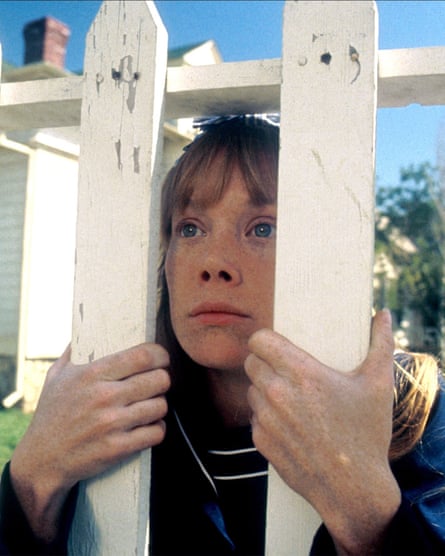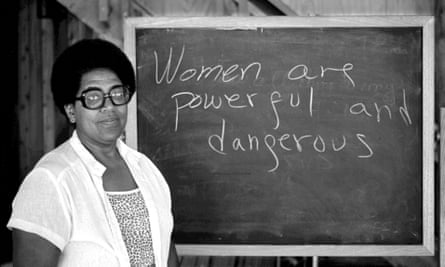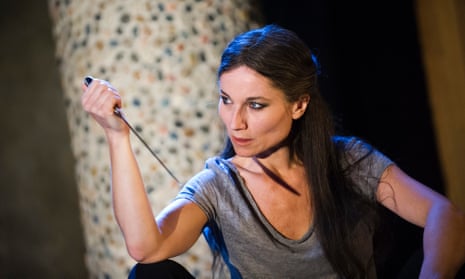We are angry. If the last two years have taught us anything, it’s that. There’s a quiet rage, simmering and unspoken, among women – an anger that’s been encoded in our private conversations, the words we choose and looks we exchange; a language that only we know how to use.
While I was working on my novel, The Furies – a book about obsession, witchcraft, and murder – I hadn’t quite realised the extent of it. But it was unavoidable: the young women at the core of my book were simmering with a desire to take revenge on the men who wronged them. To feel the power they knew they had, if only they could seize it.
I wondered whether it was too much. Whether it was just me. But two weeks after The Furies sold to publishers, the allegations agains Harvey Weinstein brought #MeToo into the international spotlight. In an instant, it seemed, the conversation changed. None of us were alone, and all of us were angry.
There’s never been a better time to read, and reassess, the voices of those angry women in literature, or to hear the quiet expressions of fury that have, until now, been heard only in that whispered subtext – all too easily missed, hidden under the mask of niceness, of the need to be “good girls”.
So – here are some of my favourites.

1. Carrie by Stephen King
When I was 12, I stole a tattered copy of Carrie from my parents’ bookshelves, and stayed up all night reading it. It was the first adult novel I’d read, and my first foray into horror – and I was immediately hooked. No surprise, then, that my first novel is about teenage girls and revenge – the unpopular, horribly bullied Carrie using her powers to take hers is a scene that’s stayed with me, ever since.
2. Medea by Euripides
Perhaps the original figure of female rage, Euripides’ character is the very definition of the woman scorned. The play has been performed and interpreted in various ways, with Medea seen alternately as a cold-blooded killer, or a sympathetic figure broken by her husband’s betrayal. Is she a soulless, evil woman, capable of the worst imaginable crime – or a wife driven to madness by the actions of a selfish man?
3. Fates and Furies by Lauren Groff
A novel of two halves. The first is the story of a marriage from the perspective of Lotto, the husband – a failed actor turned playwright, generally beloved despite his flaws. The second, though, is the same marriage seen through the eyes of his wife, Mathilde: the “strong woman” behind the “great” man, who positively seethes with rage as she quietly manipulates both Lotto and the people around him to ensure their success. It’s a quiet, subtle anger, made stunning by Groff’s elegant, lyrical prose.

4. Sister Outsider: Essays and Speeches by Audre Lorde
I first encountered Audre Lorde in a photograph: standing by a blackboard, staring down the camera lens, with the words “Women are powerful and dangerous” written beside her. A poet and essayist, Lorde’s work often uses rage as its driving force, addressing difference head-on and encouraging her readers, above all else, not to remain silent. And while her poetry is remarkable (Afterimages, on the murder of Emmett Till, is take-your-breath-away good), this collection of essays is unflinching, and burns with righteous fury.
5. Red Clocks by Leni Zumas
Among the recent surge of excellent feminist dystopias in fiction, I found this 2018 novel the most unsettling for its eerie ordinariness. In a US where abortion has been outlawed, the novel explores the intersecting lives of four women, all of whom are in some way affected by the government’s extended control over their bodies. Zumas’ characters rarely rage loudly – there’s little in the way of argument or protest visible to the world around them – and yet, every sentence shimmers with anger, quiet rebellions that become visible only when held to the light.
6. Eloquent Rage by Brittney Cooper
This is a book I want to press into the hands of everyone I know. It’s an incredible piece of writing, combining feminist theory with pop culture (via Beyoncé, Serena Williams, and Hillary Clinton, to name but a few). It’s also searingly, thrillingly honest, drawing on Cooper’s own experience as a Black Feminist (“capital B, capital F”) in the US today. Her fury burns straight through the page, making the case for harnessing anger to dismantle the systemic injustices that black women face.
7. Good Morning, Midnight by Jean Rhys
This 1939 novel follows Sasha, a woman thirsting for oblivion, through the dive bars and cheap hotels of Paris. It’s a quietly devastating book in which rage is inextricably tied into shame, grief, and hurt. Anger, for Sasha, is often misinterpreted, preceding or followed by tears. With the people around her taking her frustration – “the bitter peace that is very near to death, to hate” – as weakness, she continues searching, hopelessly, for a way into nothingness. It’s a short little book – little more than 150 pages - but a vivid and heartbreaking one.
8. Gone Girl by Gillian Flynn
While Gone Girl was everywhere when it was published, it was central character Amy Dunne’s “cool girl” monologue – skewering the midpoint of the book, with its breathtaking twist – that I saw shared among women I knew. Flynn’s brilliant, seething section on the way women are expected to perform “coolness” for the benefit of men struck a chord. “Cool Girls never get angry,” she says. “They only smile in a chagrined, loving manner and let their men do whatever they want.” The anger in Dunne’s voice, here, is electric – a thrilling moment of rage in an altogether gripping book.
9. Nightwood by Djuna Barnes
Much about this book has not aged well since its publication in 1936 – but as a novel about rage and despair, it is almost unparalleled. Produced after her breakup with Thelma Wood – the novel’s Robin Vote – Barnes said that it was written in blood “while it was still running”. Robin treats her lovers with cruel disregard, each of them possessed after a while with their own, terrible madness. Through it all, Dr Matthew O’Connor – a man who “turned up this time as I shouldn’t have been”, longing to be a woman – offers a sympathetic ear, talking them through each terrible, lonely night.
10. Eileen by Ottessa Moshfegh
“I hated almost everything. I was very unhappy and angry all the time,” Eileen says, at the opening of this Booker-shortlisted novel. Which is, in many ways, an understatement. Eileen’s loathing – of the people around her, of her situation and of herself – runs deep, and makes for a deeply uncomfortable, yet wholly satisfying read. Through a brilliantly deadpan narrative voice, and with an eye for the comic and grotesque, Moshfegh creates a character who is almost impossible to like – but utterly thrilling to read.

Comments (…)
Sign in or create your Guardian account to join the discussion